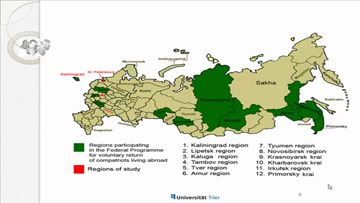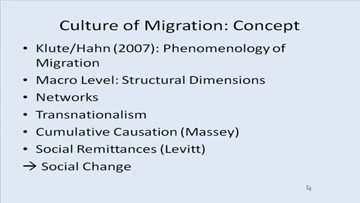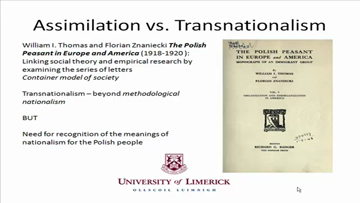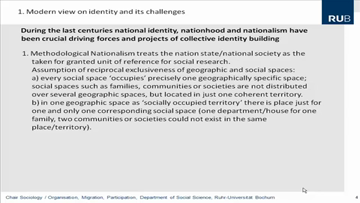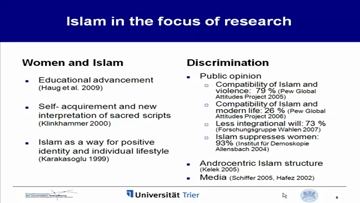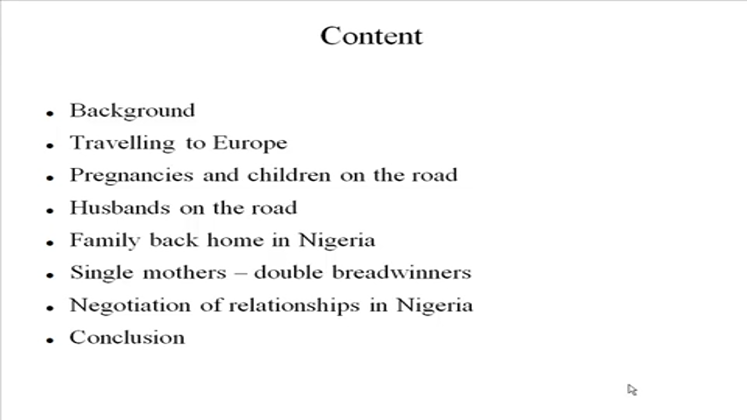Social Ties in Motion
Nigerian Trans-Migrants in Morocco and Spain
Kristin Kastner focusses on Nigerian women on both sides of the Strait of Gibraltar. These trans-migrants are confronted with a range of borders and border-crossings: They have to transgress political, legal, cultural, linguistic, individual and even existential borders. While travelling to Europe new and often highly provisional relationships develop.
Kastner shows that a range of responsibilities and duties on both sides of the Strait, and ties to own children, husbands, and family in Nigeria are crucial phenomena in the women’s lives. Depending on their life situations, these ties show different grades of intensity and duration and often span from the country of origin to the transit country and the country of migration. The question arises as to what extent the phase of travelling to Europe and the life as a migrant in Europe influence or even cause certain social phenomena.
Kristin Kastner started her Ph.D thesis Zwischen Suffering und Styling. Nigerianische Migrantinnen beiderseits des Estrecho
. Since November 2007 she has been working as assistant teaching fellow at the Institute of Anthropology at the Goethe-University, Frankfurt a.M.. In May 2011 she finished her PhD with magna cum laude
at BIGSAS (Bayreuth International Graduate School of African Studies, University of Bayreuth).
Panel I: Networks of Migrants - October 14th, 2011
The Resilience of People in Motion
-
54498 Hits
-
|
-
2 Votes
-
|
-
16 Beiträge
Processes of immigration, transmigration, and remigration in the wider Europe today
Europe is a continent shaped by migration. Every year millions of people are migrating into the European Union. Others are emigrating from EU member countries. Many are leaving their homes and are trying to integrate into the host country, while others circulate between their home country and their “new home”, leave the country of entry, returning back to their “country of origin”, or they even migrate on to third countries.
Migration is a complex process with constraints and opportunities. Its flows have created different patterns, regimes and even cultures of migration. It involves voluntary and involuntary aspects, economic and non-economic issues, constructions and reconstructions between physical and symbolic spaces. This stipulates also new ways of theorizing and researching in the field.
Strategies of Survival, Strategies of Resistence
Migrants and migratory groups adopt as well as resist to challenges and expectations by the mobility itself or the receiving society. They perform resilient and innovative strategies of survival.
They are resilient by maintaining their culture(s), system(s) of belief, traditions, way of life etc. Yet, they are innovative being open for change, being transformers, innovators, entrepreneurs themselves. Therefore, adoption, change and/or innovation vs. resistance, continuity and/or resilience have to be seen as part of the migratory agency. The migrants’ culture of resilience, meaning the maintenance of core elements of their livelihood, has to be conceptualized in an ever changing world challenging the integrity and cohesion of any, but especially migratory groups.
The Conference
The aim of the conference is to discuss new theoretical approaches, methodologies and empirical research results on immigration, transmigration and re-migration topics. It focusses on changing European migration regimes and discourses since the fall of the iron curtain until today.
Contact
Prof. Michael Schönhuth
University of Trier
Universitätsring 15
D-54286 Trier
+49-(0)6 51-201-27 10 (Office)
http://transmigration.eu/
Zu
The Resilience of People in Motion
